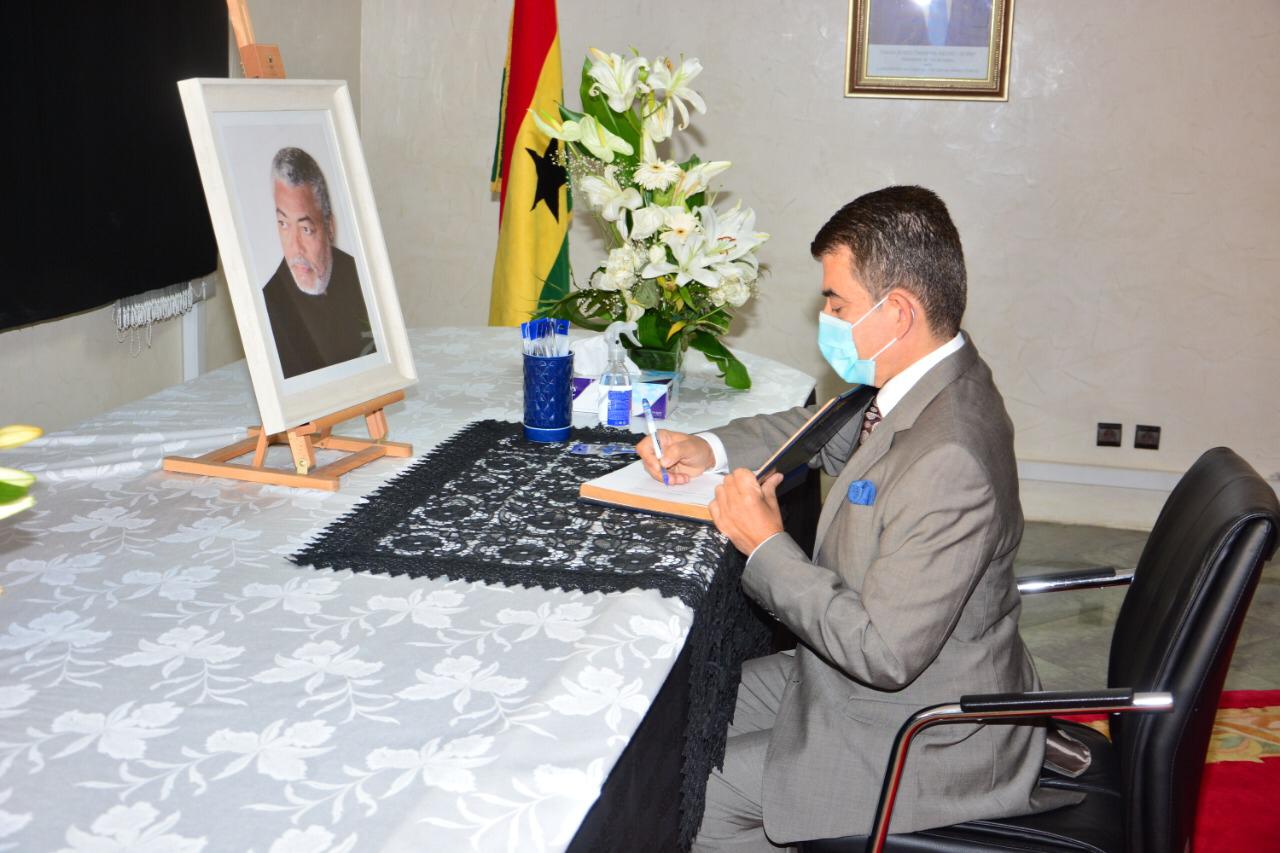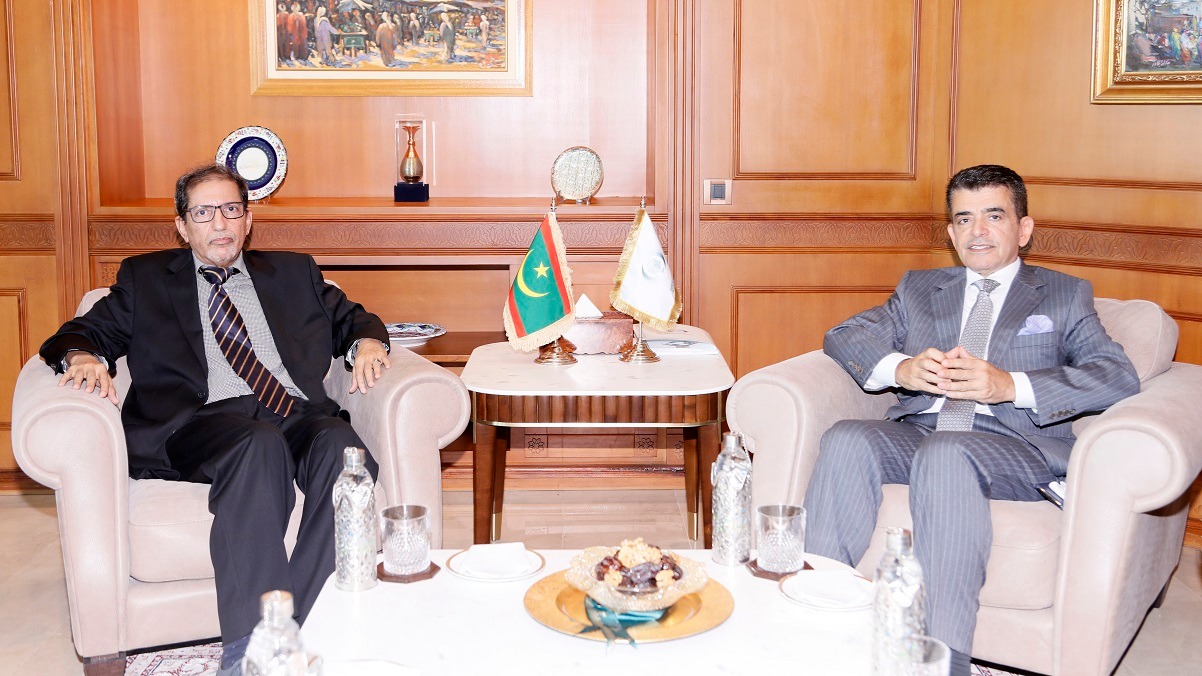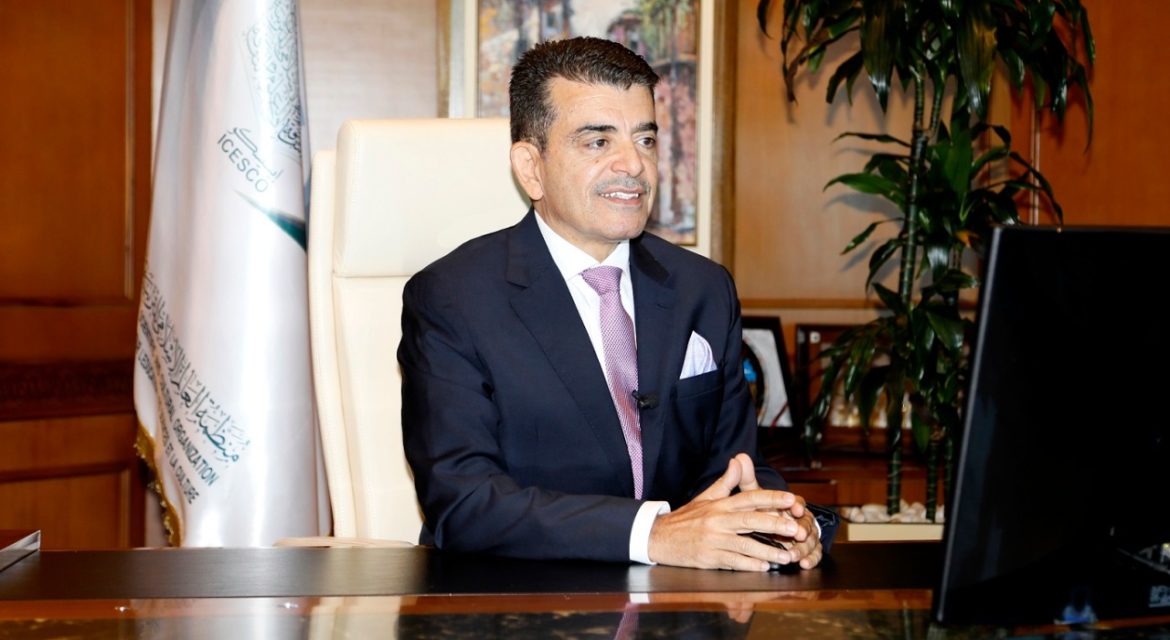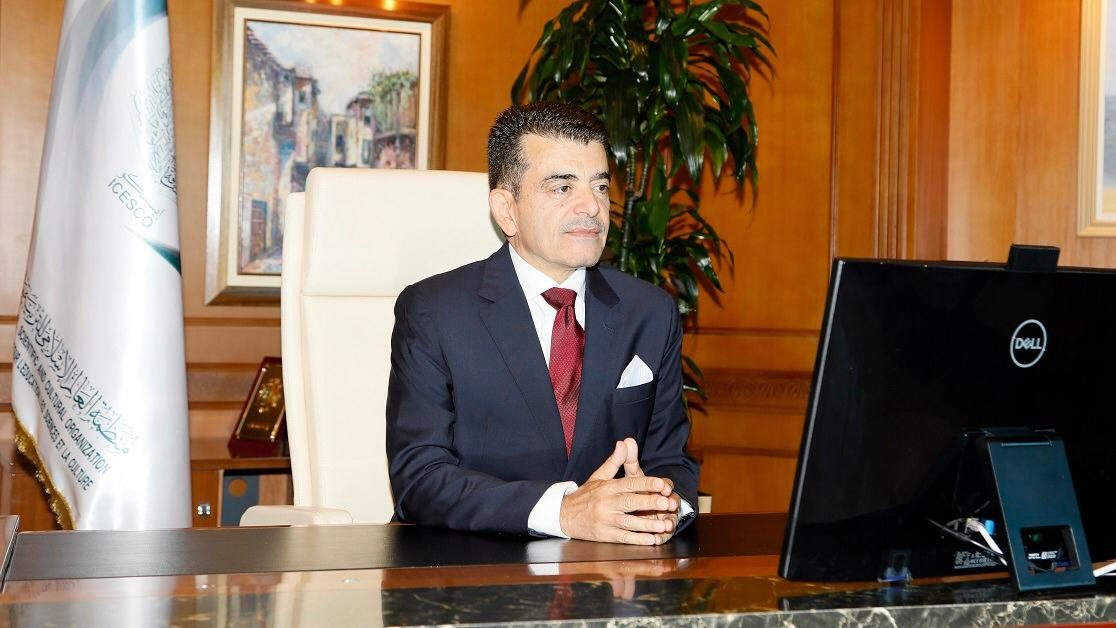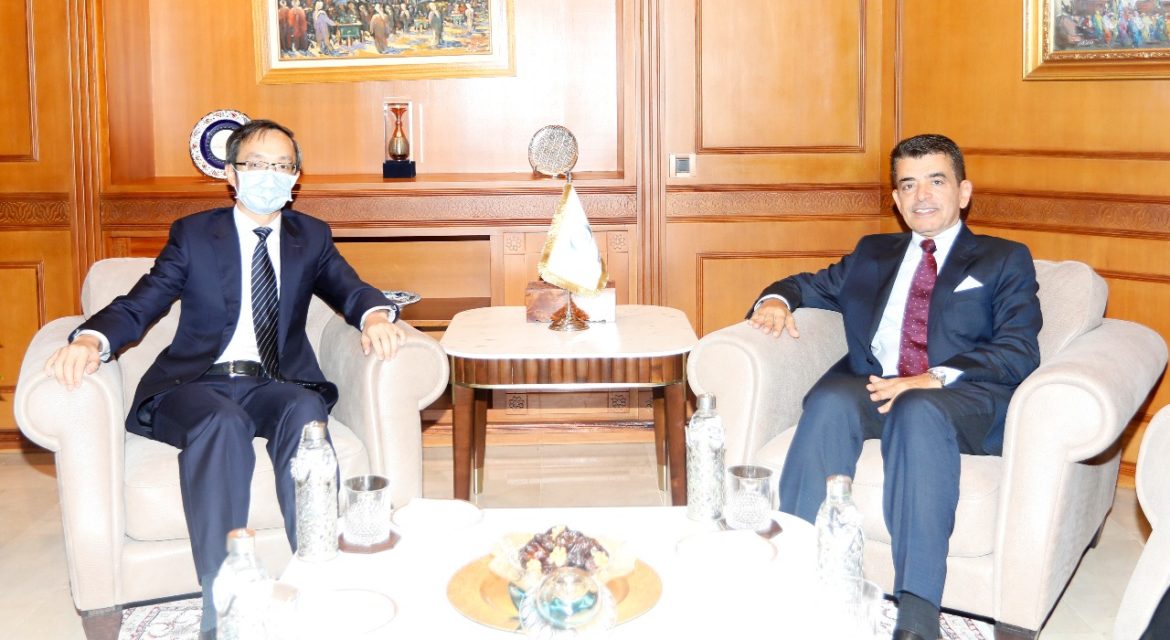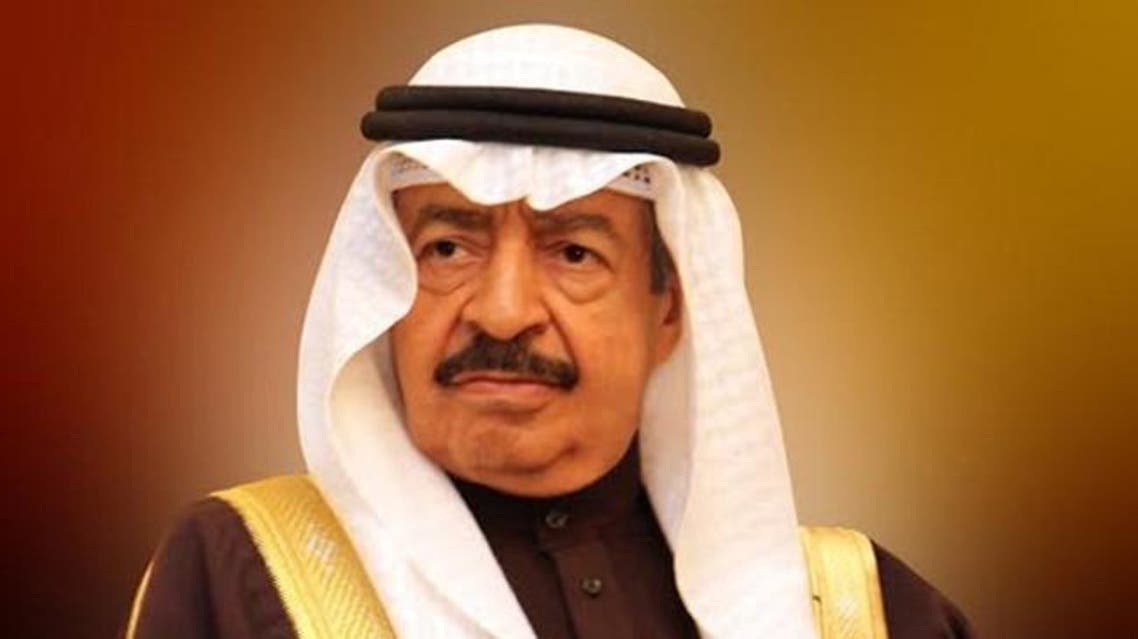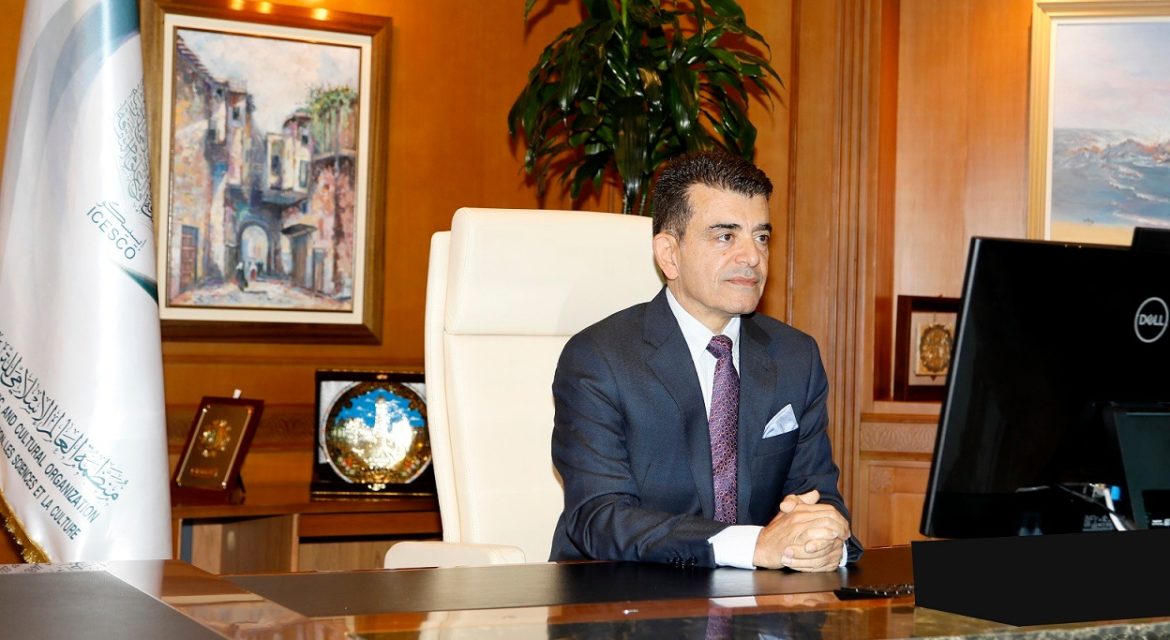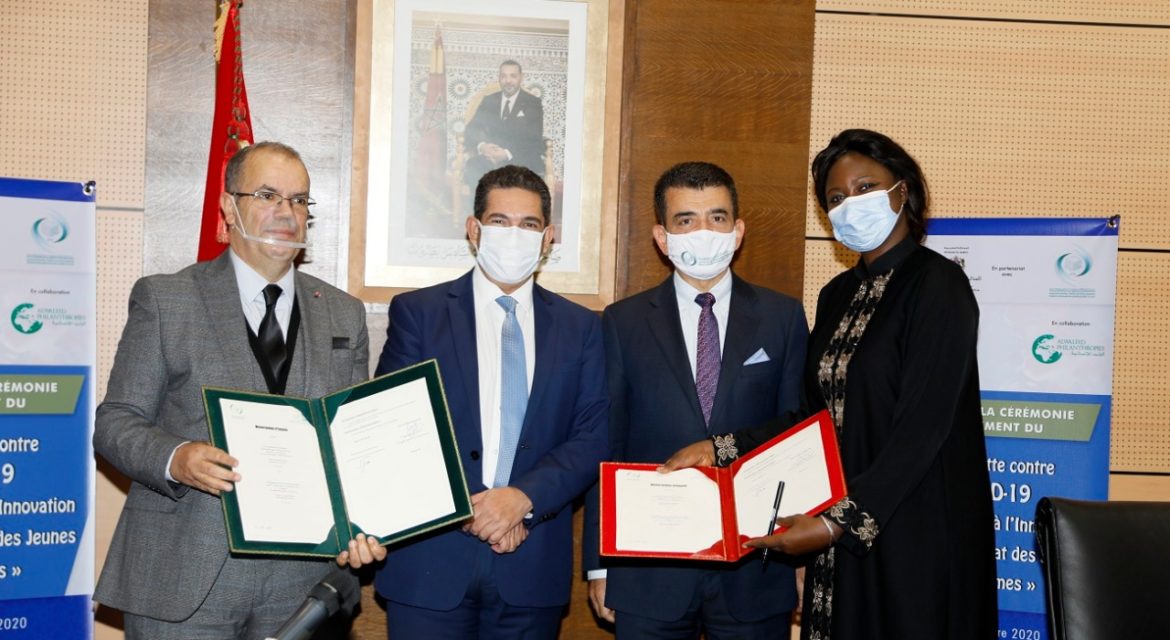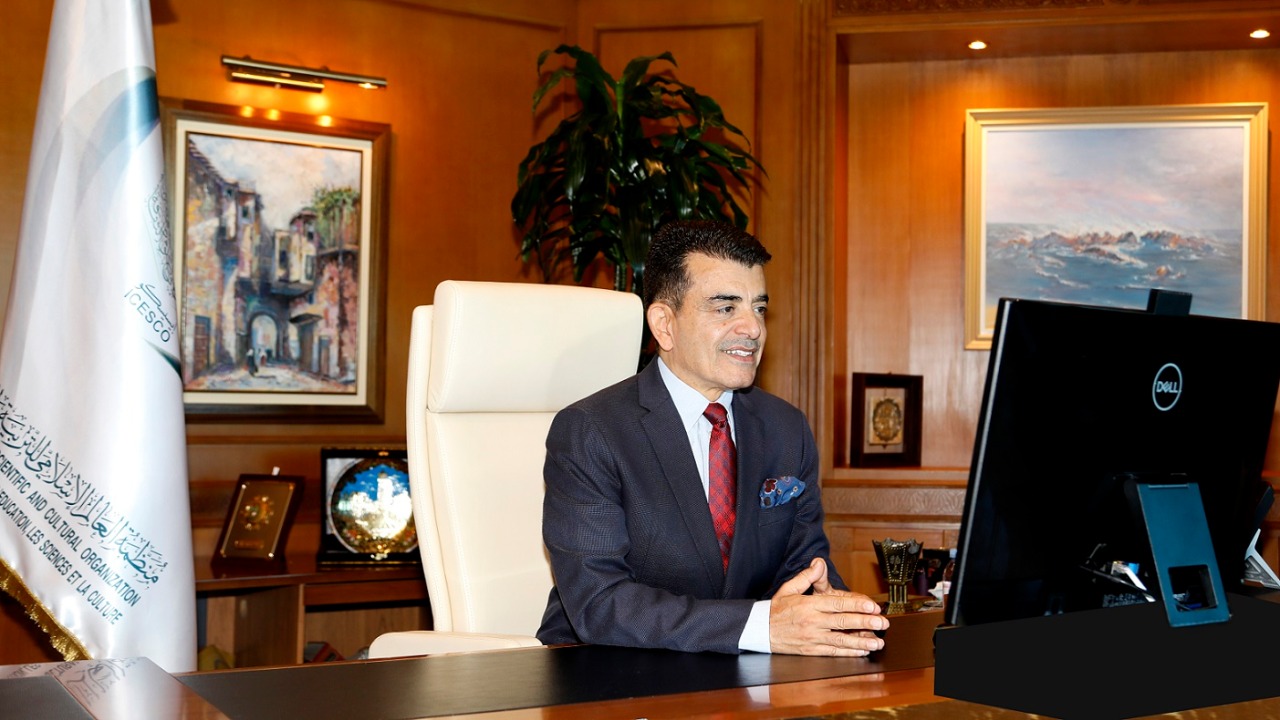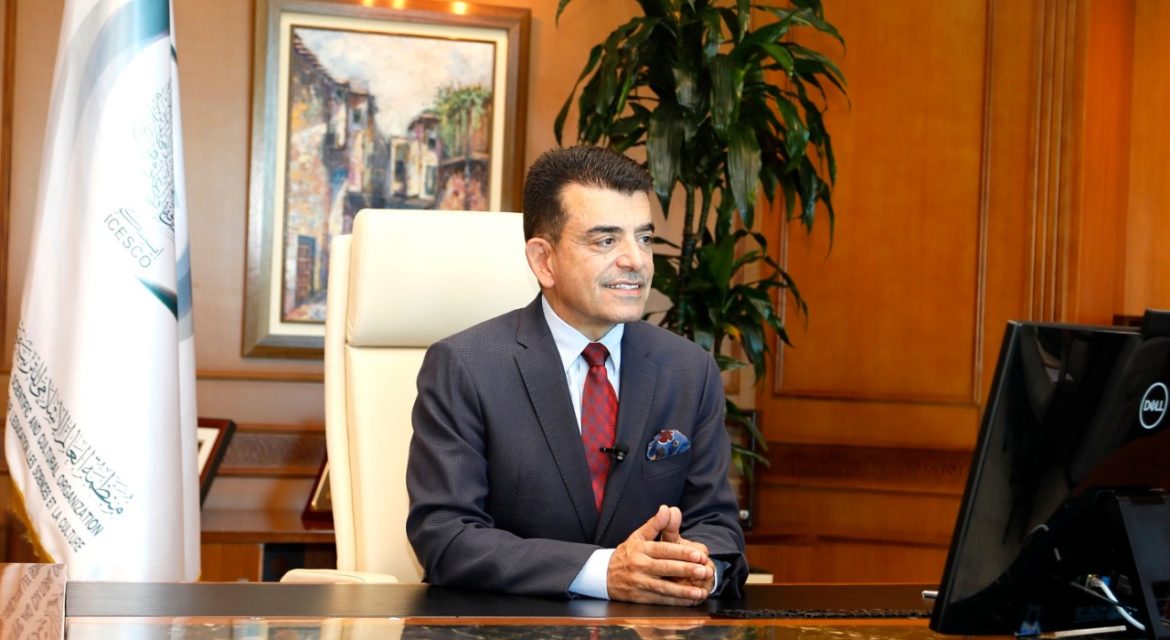As part of the
Islamic World Educational, Scientific, and Cultural Organization (ICESCO)
initiatives to publicize great thinkers and intellectuals in the history and
present of the Islamic world, the Organization held an international webinar
under the theme: “Tolerance, Foresight and Iqbal.” The goal is also to benefit
from the scholars’ perceptions and creativity to advance the reality of the Islamic
world, promote its societies, and build the future.
ICESCO’s
Strategic Foresight Center held the webinar to commemorate the birth of the
illustrious intellect, as one of the most important philosophical, poetic, and
literary figures in the history of the Islamic world.
At the
opening session of the webinar, Dr. Salim M. Al-Malik, ICESCO Director-General
(DG), called on the Islamic world to renew and enlighten minds and promote the
values to revive the glories of the Ummah. The DG particularly focused
on the thought, action, peace and tolerance, and active engagement in progress
and development.
The glory
can also be achieved through rejecting all forms of violence, extremism, and
intellectual momentum that have nothing to do with the Islamic religion and the
Message of the Honorable Prophet (PBUH), the DG continued.
At the close
of his address, Dr. AlMalik stressed that the webinar will not be the last of
its kind to revive and disseminate the peaceful messages contained in the noble
Islamic religion, a religion known for its tolerance and noble moral values. He
also stressed learning from the contribution of the Ummah’s historical
and contemporary scholars and thinkers to human civilization.
In her address,
Ms. Nasira Iqbal, a lawyer and daughter-in-law of the late scholar Muhammad
Iqbal, said that the message of peace was clear in the teachings of Muhammad
Iqbal and that his poetry constitute an invitation for tolerance and equality.
She added that Iqbal believed that everyone plays a role in the international
community and that the ideal state is one that respects the faith and beliefs
of its different citizens.
Mr. Hamid
Asghar Khan, Ambassador of Pakistan to Morocco, indicated in his presentation the
importance of history and foresight. He stressed on the role of education in
the advancement of peoples and of tolerance achieving respect for culture.
Mr. Imtiaz
Ahmed Kazi, Ambassador of Pakistan to the Philippines, explained that tolerance
does not mean abandoning social values, but rather not persisting in imposing
certain practices on others. He continued that Muhammad Iqbal is among the
poets who promoted the value of tolerance in Pakistan.
The first
session of the event discussed “Aspects of peace and tolerance in the writings
of Muhammad Iqbal.” Mr. Abdul Raouf, a Pakistani journalist and analyst, said
that Muhammad Iqbal was an outstanding Muslim figure and, through his
philosophy, called for tolerance and unity among all Muslims, as well as
knowledge and innovation.
Mr.
Asadullah Khan, writer and journalist, said that Muhammad Iqbal was seeking a
vision of the future for all humanity that is not limited to any specific
region, as well as supporting democracy and the right of peoples to
independence.
The second
session focused on “Muhammad Iqbal’s Forward-looking Vision,” which featured
Dr. Aziz Ali Najam, former Vice-Chancellor of Karakoram International
University in Pakistan. Dr. Najam stated that Muhammad Iqbal was aware that critical
thinking is needed to limit the influence of the material world and that poetry
was only a method to keep the Ummah united.
Philosopher
Abdul Nour Bidar stressed the need to teach the thought and writings of
Muhammad Iqbal to current and future younger generations, and to encourage
scholars to deepen his thought.
Mr. Mohammed
Thami Elharrak, a scholar specialized in Islam and Sufism, stressed the urgent
need for a religious revival to develop Islamic thought.
In his address,
Mr. Sulaiman Bashir Dayyan, philosopher and specialist in Islamic philosophy,
said that divided communities rejecting the Other need to know and be inspired
by the principles of Muhammad Iqbal’s philosophy, which are deep-rooted in the
Holy Quran.
Dr. Kaïs
Hammami, Director of the Center for Strategic Foresight, said that ICESCO is in
the process of producing a book on the thought and philosophy of Muhammad
Iqbal, under the title “Relation with Time in the Philosophy of Muhammad Iqbal.”
He also stated that the Organization will hold a symposium in 2021 to discuss the
Scholar’s ideas and prospective vision.

